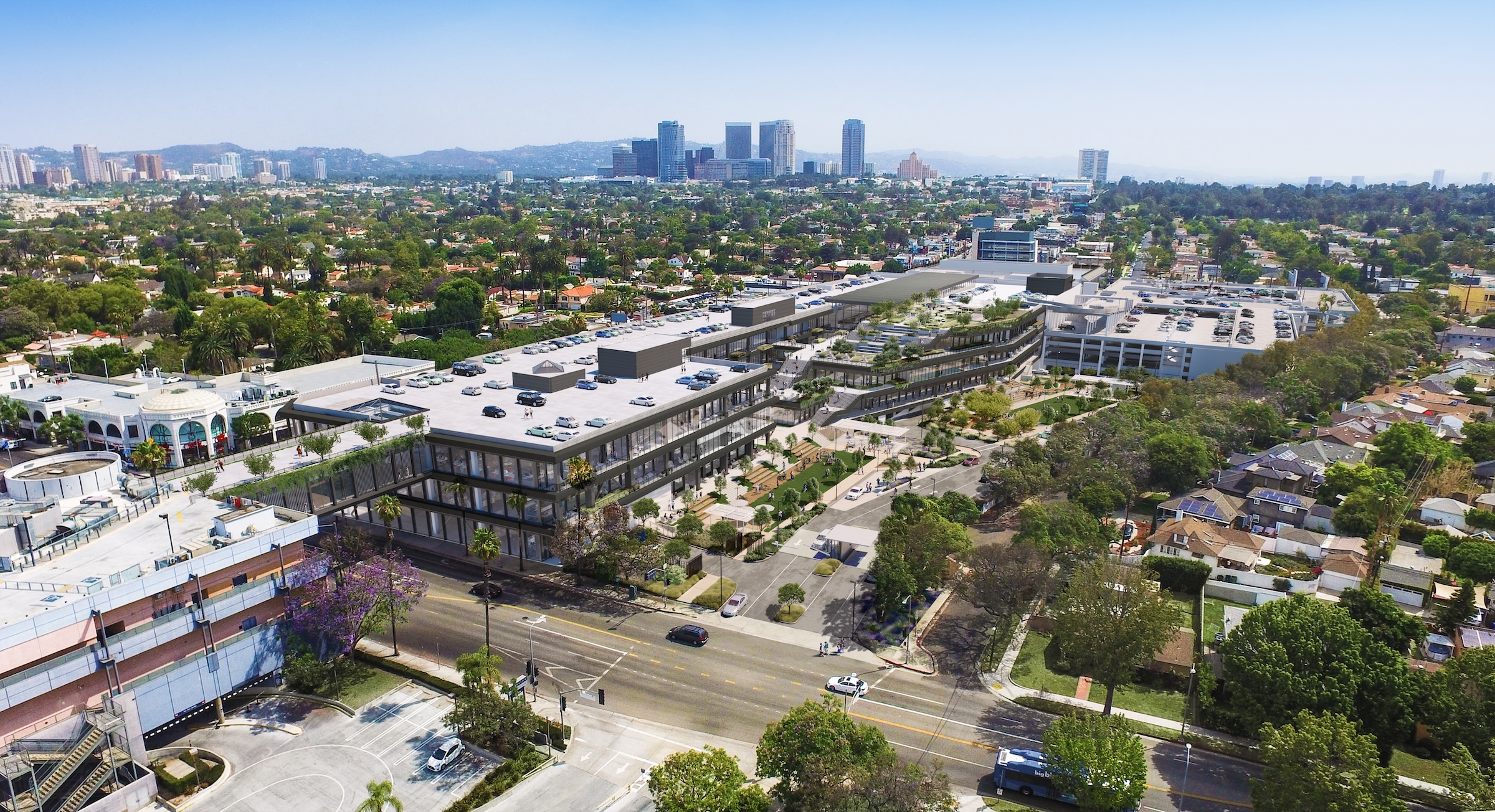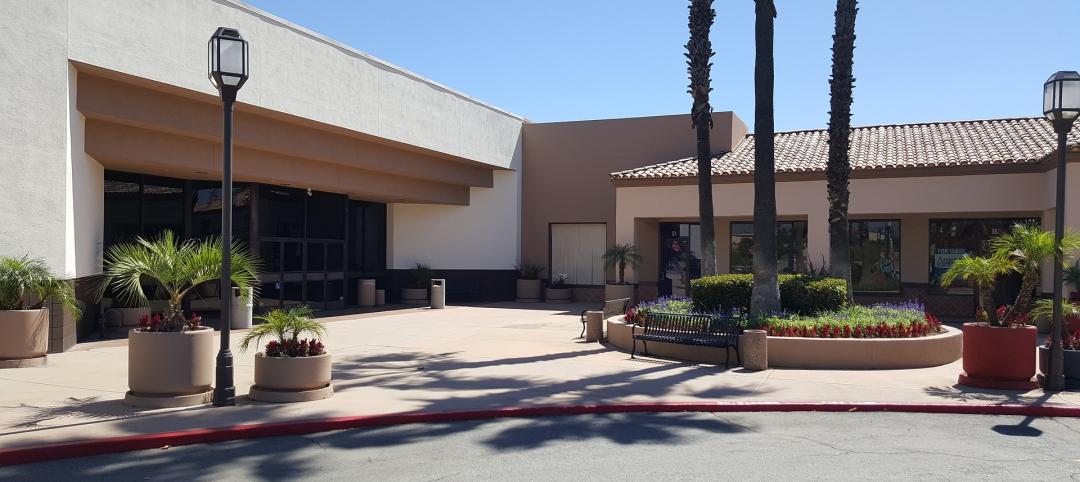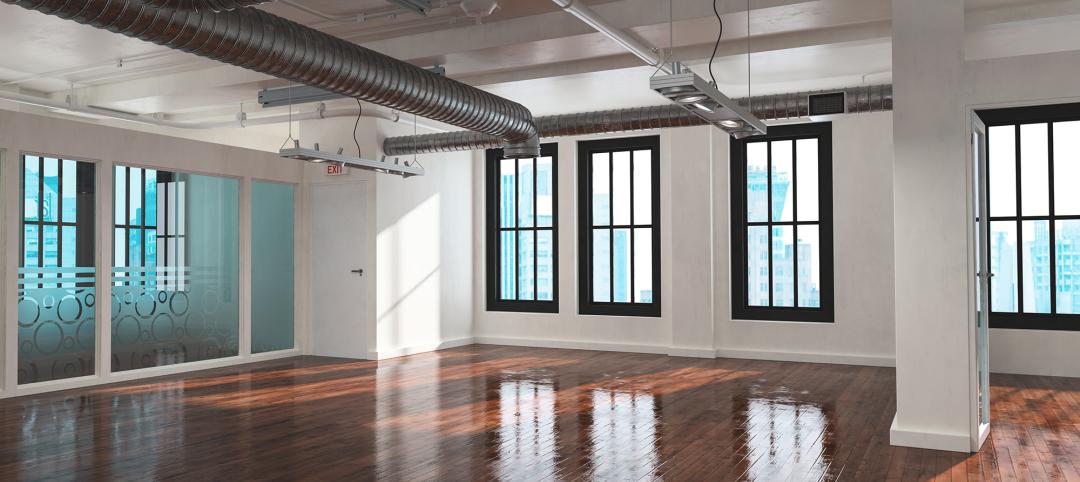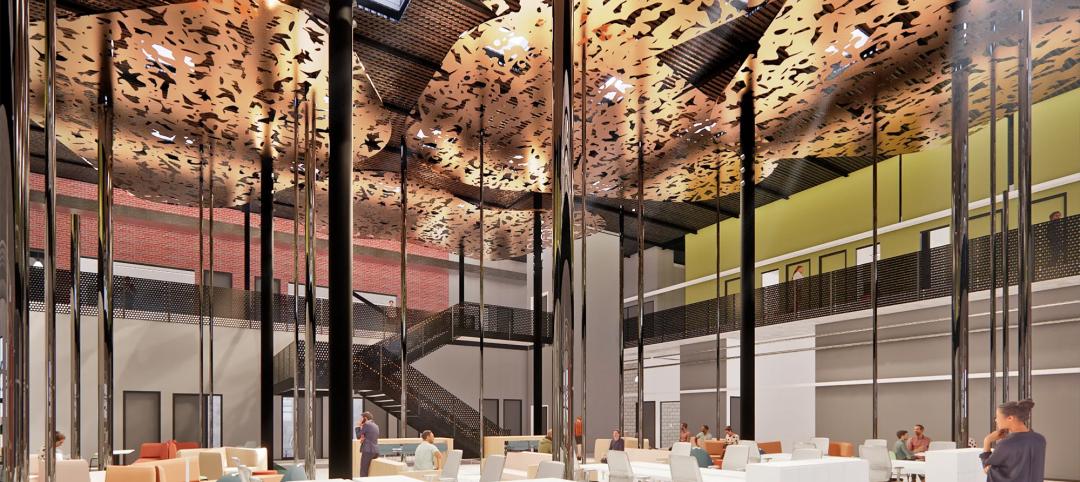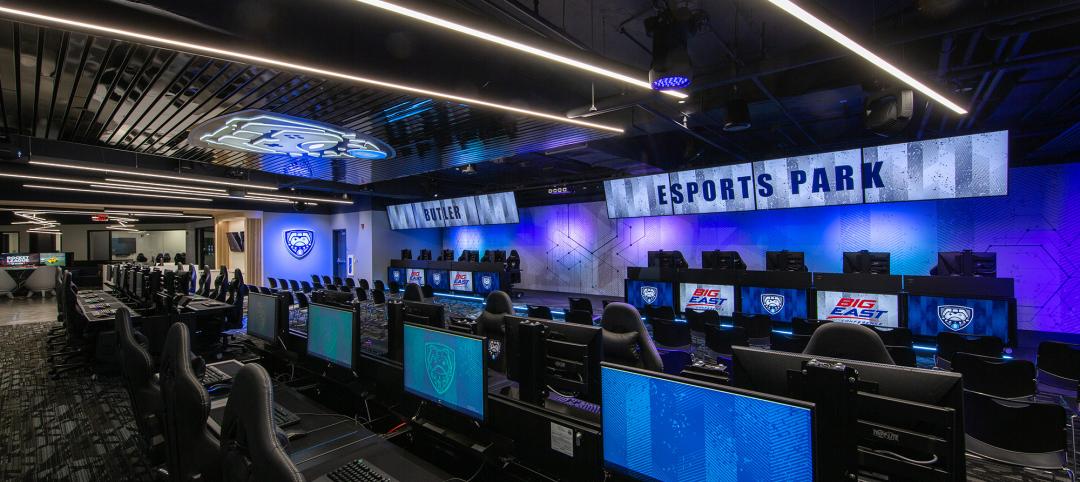UCLA recently acquired a former mall that it will convert into the UCLA Research Park that will house the California Institute for Immunology and Immunotherapy at UCLA and the UCLA Center for Quantum Science and Engineering, as well as programs across other disciplines. The 700,000-sf property, formerly the Westside Pavilion shopping mall, is two miles from the university’s main Westwood campus. Google, which previously leased part of the property, helped enable and support UCLA’s acquisition.
The Research Park will make use of the flexible work areas within the property. The expansive, high-ceilinged indoor space will be used for research laboratories and offices. The former mall also includes a 12-screen multiplex movie theater that may be converted into lecture halls or performance spaces, allowing UCLA to offer programming across the arts, humanities, sciences, and social sciences. The property is easily accessible by public transportation lines, including the Westwood/Rancho Park Metro station that connects directly to downtown. It is also minutes away from UCLA’s Westwood campus by bus.
The institute will draw on the expertise of UCLA faculty members, scholars from other higher education institutions, and other leading scientists and practitioners in clinical and biomedical scientific research, including human genetics, genomics, computer science, engineering, and information science. Researchers will pursue new tools, treatments and vaccines for cancer, autoimmune and immune deficiency disorders, infectious diseases, allergies, heart conditions, solid organ transplantation, and other major health-related issues.
The UCLA Research Park will also be home to the UCLA Center for Quantum Science and Engineering, which conducts research in the emerging field of quantum science and technology. Research explores quantum computing, communication, and sensing, with the aim of dramatically increasing information processing power by harnessing the unusual behavior of subatomic particles. Founded in 2018 and operated by the UCLA College’s Division of Physical Sciences and the UCLA Samueli School of Engineering, the center has received funding from Boeing and the National Science Foundation and includes more than two dozen UCLA faculty from the fields of physics, engineering, computer science, chemistry, mathematics, and biostatistics. The center will also house the Quantum Leap Challenge Institute for Present and Future Quantum Computation, an NSF-funded initiative that consists of eight universities.
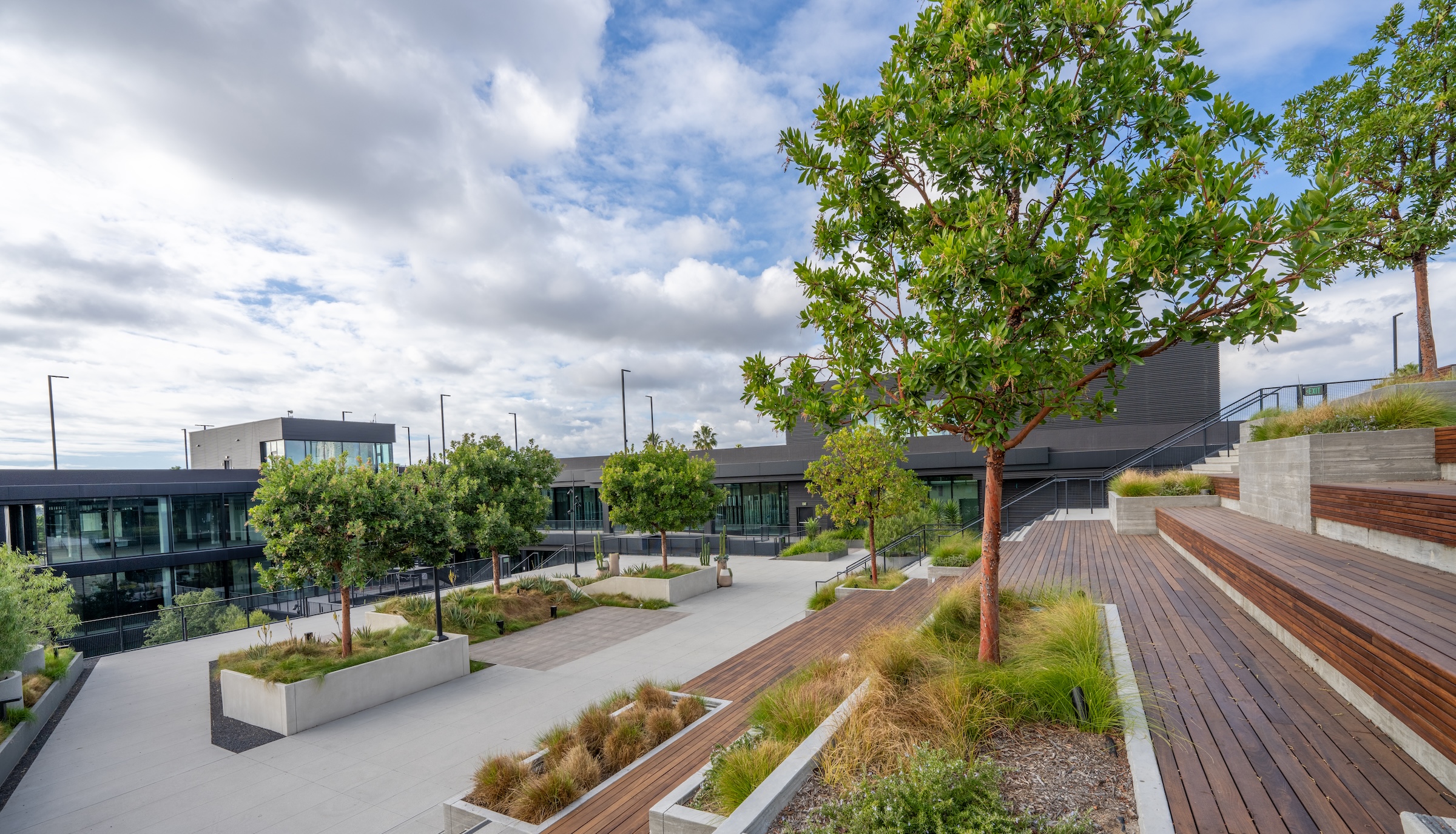
New space at the UCLA Research Park will facilitate greater collaboration between the quantum center and its partners and will solidify UCLA’s leadership role in this developing field, according to Miguel Garcia-Garibay, dean of physical sciences, and Alissa Park, dean of engineering.
This major acquisition—UCLA’s third in the past 15 months—is part of a transformative expansion designed to broadly extend resources and institutional expertise, deepen the campus’ connections to Los Angeles’ diverse and dynamic communities, and meet the growing demand for top-tier higher education across the city and region. Each acquisition has been an adaptive and sustainable development, repurposing existing structures for new uses while avoiding the need for major construction.
Owner and/or developer: UCLA
Design architect: Flad Architects
Other building team members have not yet been selected.
Here is the full press release from Flad Architects:
Flad Architects has been selected as Executive Architect for the UCLA Research Park Master Plan Study, which will include the development of a phased adaptive reuse master plan and demising plan to convert the former site of the 700,000-square-foot Westside Pavilion shopping mall into a new research park.
The research park will serve as a nexus for discovery and innovation, bringing together academic researchers, corporate partners, startups, and government agencies to advance fields of science and technology that have the potential to lead to previously unimaginable possibilities to address complex challenges.
Upon completion, the new Research Park will host two multidisciplinary research centers: the California Institute for Immunology and Immunotherapy at UCLA and the UCLA Center for Quantum Science and Engineering. The design will also include projections for future growth.
Uniting breakthroughs from biosciences, quantum science and engineering, and other emerging technologies has far-reaching potential to save lives and revolutionize healthcare outcomes.
The Institute for Immunology and Immunotherapy will draw on the expertise of UCLA faculty members, scholars from different higher education institutions, and other leading scientists and practitioners in clinical and biomedical scientific research. Researchers will pursue new tools, treatments and vaccines for cancer, autoimmune and immune deficiency disorders, infectious diseases, allergies, heart conditions, solid organ transplantation, and other major health-related issues.
Founded in 2018, the UCLA Center for Quantum Science and Engineering conducts research in the emerging field of quantum science and technology — including quantum computing, communication and sensing — to dramatically increase information processing power by harnessing the unusual behavior of subatomic particles. It is operated by the UCLA College’s Division of Physical Sciences and the UCLA Samueli School of Engineering.
The UCLA Research Park project is part of UCLA’s plan to expand the campus footprint through adaptive reuse and sustainable development, repurposing existing structures while avoiding the need for major new construction.
The expansion plan aims to greatly extend the university’s resources and institutional expertise, deepen the campus’ connections to Los Angeles’ diverse and dynamic communities, and meet the growing demand for top-tier higher education across the city and region.
Located on the 10800 block of West Pico Blvd., two miles south of the UCLA campus, the property consists of two buildings connected by an enclosed pedestrian bridge spanning Westwood Boulevard.
The project is scheduled to be completed in May 2027.
Related Stories
Adaptive Reuse | Jan 12, 2024
Office-to-residential conversions put pressure on curbside management and parking
With many office and commercial buildings being converted to residential use, two important issues—curbside management and parking—are sometimes not given their due attention. Cities need to assess how vehicle storage, bike and bus lanes, and drop-off zones in front of buildings may need to change because of office-to-residential conversions.
K-12 Schools | Jan 8, 2024
Video: Learn how DLR Group converted two big-box stores into an early education center
Learn how the North Kansas City (Mo.) School District and DLR Group adapted two big-box stores into a 115,000-sf early education center offering services for children with special needs.
Affordable Housing | Dec 14, 2023
What's next for affordable housing in 2024?
As 2023 draws to a close, GBBN’s Mary Jo Minerich and Amanda Markovic, AIA sat down to talk about the future. What’s next in terms of trends, technology, and construction of affordable housing?
MFPRO+ News | Nov 21, 2023
Underused strip malls offer great potential for conversions to residential use
Replacing moribund strip malls with multifamily housing could make a notable dent in the housing shortage and revitalize under-used properties across the country, according to a report from housing nonprofit Enterprise Community Partners.
Office Buildings | Nov 10, 2023
3 important early considerations for office-to-residential conversions
Scott Campagna, PE, Senior Director of Housing, IMEG Corp, shares insights from experts on office-to-residential conversion issues that may be mitigated when dealt with early.
Adaptive Reuse | Nov 1, 2023
Biden Administration reveals plan to spur more office-to-residential conversions
The Biden Administration recently announced plans to encourage more office buildings to be converted to residential use. The plan includes using federal money to lend to developers for conversion projects and selling government property that is suitable for conversions.
Government Buildings | Oct 23, 2023
Former munitions plant reimagined as net-zero federal workplace
The General Services Administration (GSA) has embraced adaptive reuse with Building 48, an exciting workplace project that sets new precedents for how the federal government will approach sustainable design.
Esports Arenas | Oct 10, 2023
Modular esports arena attracts more than gamers
As the esports market continues to grow to unprecedented numbers, more facilities are being developed by universities and real estate firms each year.
Luxury Residential | Oct 2, 2023
Chicago's Belden-Stratford luxury apartments gets centennial facelift
The Belden-Stratford has reopened its doors following a renovation that blends the 100-year-old building’s original architecture with modern residences.
Office Buildings | Sep 28, 2023
Structural engineering solutions for office-to-residential conversion
IMEG's Edwin Dean, Joe Gulden, and Doug Sweeney, share seven key focuses for structural engineers when planning office-to-residential conversions.


